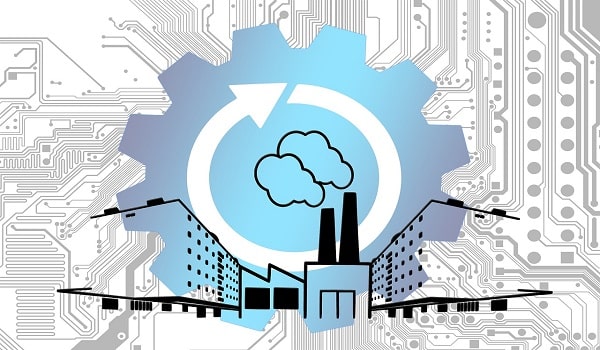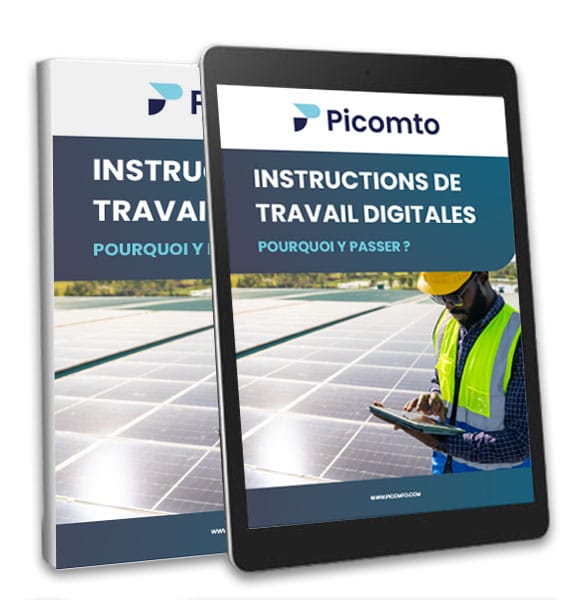Is remote expertise truly revolutionizing modern industry? How can companies overcome geographical distance challenges while maintaining operational excellence? In a context where digitalization is accelerating and experts can no longer be physically present everywhere, remote expertise emerges as an indispensable solution. This innovative approach enables companies to benefit from instant expert advice, optimize their industrial processes, and significantly reduce their costs.
Through advanced technologies such as augmented reality and digital instructions, Picomto positions itself as the reference solution to transform this vision into concrete reality.

Key takeaways regarding remote expertise:
- Instant accessibility: Benefit from specialized expertise anywhere, anytime
- Cost reduction: Drastically decrease travel and intervention expenses
- Operational continuity: Maintain your activities even under geographical constraints
- Productivity improvement: Accelerate problem resolution through digital technologies
- Complete traceability: Document and analyze all your remote interventions
Would you like to discover how Picomto can transform your operations?
Contact our team of experts today.
1. What is remote expertise and why is it crucial for industry?
Remote expertise represents a revolutionary approach enabling specialists to intervene on industrial equipment and processes without physically traveling.
This method leverages advanced digital technologies to provide real-time expert guidance. In today’s industrial context, this solution becomes indispensable for maintaining competitiveness and operational efficiency.
1.1. How does remote expertise transform industrial processes?
Remote expertise revolutionizes industrial processes in several ways:
- Immediate intervention: No need to wait for a physical expert’s arrival
- Precise diagnosis: Use of high-definition cameras and connected sensors
- Automatic documentation: Systematic recording of interventions
- Enhanced collaboration: Simultaneous work of multiple experts on the same problem
This transformation enables companies to significantly improve their responsiveness to incidents.
1.2. What are the main advantages of remote expertise for your company?
The benefits of remote expertise are multiple:
- Substantial savings: 60% reduction in intervention costs
- Increased efficiency: 3x faster resolution of technical problems
- Global expertise: Access to the world’s best specialists
- Enhanced security: Limitation of travel-related risks
These advantages translate directly into improved return on investment.
2. What are the key technologies for effective remote expertise?
Modern technologies constitute the foundation of high-performance remote expertise. They enable creating an immersive and interactive experience between the remote expert and the on-site operator.
The intelligent integration of these technological tools guarantees intervention as effective as physical presence, sometimes even superior thanks to augmented functionalities.
2.1. How does augmented reality revolutionize remote assistance?
Augmented reality radically transforms remote assistance:
- Enhanced visualization: Overlay of contextual information on the real environment
- Precise visual guidance: Step-by-step instructions directly in the field of vision
- 3D annotation: Precise marking and pointing of elements to manipulate
- Expertise sharing: Instant transmission of expert know-how
This technology enables immediate understanding and perfect execution of instructions.
2.2. How do digital work instructions facilitate remote expertise?
Digital work instructions optimize remote expertise:
- Procedure standardization: Uniformity of interventions across all sites
- Instant updates: Real-time modification of instructions
- Advanced interactivity: Step-by-step validation of actions
- Complete traceability: Detailed history of each intervention
This approach guarantees quality and compliance of remote interventions.
2.3. Why choose a SaaS solution like Picomto for remote expertise?
The SaaS model presents decisive advantages:
- Rapid deployment: Implementation in just a few days
- Automatic updates: Continuous technological evolution
- Enhanced security: Data protection by cybersecurity experts
- Perfect scalability: Automatic adaptation to growing needs
This flexibility enables progressive and risk-free technology adoption.
3. How to implement a successful remote expertise strategy?
Implementing a remote expertise strategy requires a methodical and progressive approach. Success largely depends on preparation, team involvement, and choosing the right technologies.
Rigorous planning helps avoid common pitfalls and maximize benefits from the first deployment phases.

3.1. What are the essential steps to deploy remote expertise?
Deployment follows a structured process:
- Initial audit: Needs assessment and identification of priority use cases
- Technology selection: Choosing tools adapted to business specificities
- Pilot phase: Testing on a restricted perimeter with results measurement
- Progressive deployment: Gradual extension to all sites
This methodical approach guarantees optimal success rates.
3.2. How to train and involve your teams in this process?
Human support remains crucial:
- Practical training: Hands-on sessions on new tools
- Internal champions: Identification of ambassadors in each team
- Experience feedback: Collection and sharing of best practices
- Continuous support: Permanent technical assistance during transition
This collaborative approach ensures buy-in from all stakeholders.
3.3. What are common challenges and how to overcome them with Picomto?
Typical challenges and their solutions:
- Change resistance: Picomto’s personalized support program
- Technical complexity: Intuitive interface and dedicated training
- System integration: Native connectors with existing ERPs
- Data security: Compliance with the strictest industrial standards
Picomto proactively addresses each of these challenges through its expertise.
4. What are concrete use cases of remote expertise with Picomto?
Remote expertise with Picomto finds concrete applications in numerous industrial domains. Client feedback demonstrates significant gains in operational efficiency and cost reduction.
These use cases perfectly illustrate how technology can radically transform traditional industrial practices.
4.1. How does Picomto improve remote maintenance?
Maintenance greatly benefits from remote expertise:
- Preventive diagnosis: Early detection of malfunctions
- Guided intervention: Step-by-step assistance from remote expert
- Automatic documentation: Systematic capitalization of know-how
- Schedule optimization: Reduction of machine downtime
These improvements translate into measurable productivity gains.
4.2. How does Picomto facilitate remote operator training?
Remote training becomes more effective:
- Interactive modules: Practical learning with realistic simulation
- Personalization: Content adaptation to each learner’s level
- Continuous assessment: Real-time validation of acquired knowledge
- Digital certification: Complete traceability of acquired skills
This approach revolutionizes team skill development.
4.3. How does Picomto optimize remote quality control procedures?
Quality control gains precision:
- Digital checklists: Systematic and documented verifications
- Multimedia capture: Visual proof of compliance
- Expert validation: Remote verification by quality specialists
- Statistical analysis: Trend detection and improvement areas
This rigor guarantees consistent quality across all sites.
Conclusion
Remote expertise represents the future of modern industry, enabling companies to optimize their operations while significantly reducing their costs.
Picomto, through its advanced technologies and user-centered approach, offers the most comprehensive solution on the market. The benefits are immediate: reduced intervention times, improved productivity, and access to global expertise. The digital transformation of your industrial processes begins today.
FAQ
How does remote expertise work?
Via HD camera and interactive digital instructions in real-time.
What are the different types of expertise?
Maintenance, training, quality control, diagnosis, and technical assistance.
What is the purpose of expertise?
To transmit specialized know-how to solve complex problems efficiently.
How does remote training work?
Interactive modules with practical validation and integrated digital certification.
What is an example of expertise?
Fault diagnosis by an expert via connected glasses.
What are the different levels of expertise?
Basic, intermediate, advanced, and expert according to technical complexity.






Leave A Comment